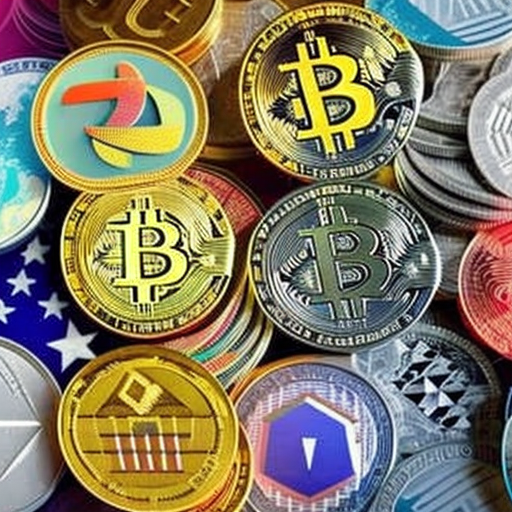World Leaders Announce Plan For New 'International Cryptocurrency' To Replace Dollar
Posted on Sun 16 April 2023 in News

July 10, Basel, Switzerland - In a shocking development today, leaders from the G7 nations announced plans tolaunch a new international cryptocurrency to replace the U.S. dollar as the global reserve currency.
The 'G7 Coin' would be administered by a independent central bank based in Basel, Switzerland. Proponents argue it will reduce geopolitical influences over the global financial system, increase stability, and benefit all participating nations equally. However, others see it as an attempt by Western leaders to maintain dominance over world finance in the face of competition from China.
"The dollar system has served the West well for over 70 years. But technology and global power dynamics are shifting. We owe it to future generations to explore innovative alternatives that build a sustainable multilateral framework for finance," claimed German Finance Minister Sigmar Gabriel on behalf of the G7 nations.
The G7 Coin would be issued and distributed to governments, banks, and potentially individuals within G7 member states to replace dollars for official transactions and reserves over time. A board of governors representing each nation would oversee its value and monetary policy. Critics argue this centralized model concentrates too much control within the G7 bloc and lacks transparency and accountability. There are also concerns it could destabilize foreign exchange markets and the dollar-denominated global economy.
Proponents counter that the G7 Coin provides more stability than existing cryptocurrencies and aims to build trust through the collective leadership of seven major democracies. They claim it will confer benefits of cryptocurrency like cheap, fast cross-border payments while avoiding threats of fraud, hacks or speculation. However, some crypto experts argue that any model administered by central governments is not truly decentralized digital money.
China and other key non-G7 nations have voiced skepticism about replacing the dollar with a G7-controlled coin. There are fears this could undermine their ability to influence global finance and even sanctions in ways that benefit national interests. However, they may ultimately have little choice but to join the system if major trading partners convert holdings.
This announcement promises to transform the global financial system in radical and uncertain ways. The debate surrounding the G7 Coin is only just beginning, with its emergence likely to depend on geopolitical tensions, national self-interests, and the complex interplay of new versus old money. The future remains to be written on whether this ambitious plan can succeed where others have failed.